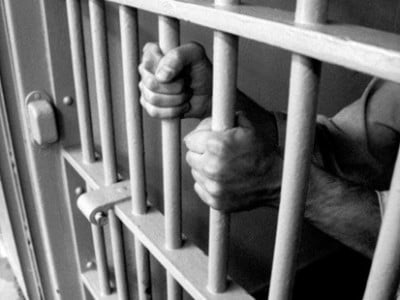So, I saw this interesting story about the inmates on Riker's Island (the NY City prison) who broke into a locked room to prevent a fellow inmate from raping a female guard. I read coverage of the story on site after site. What seemed so peculiar about each of them was the angle taken. Now this isn't true of every story out there, but many of them reacted with sort of surprise or astonishment that prisoners would help a guard out in this way.
That's pretty sad.
It's sad, but it's sadly reflective of the way our society views prisoners. Honestly, it's pretty reflective of the way many prisons function. Society looks at prison as the place to put bad people. We want those who can't get along away from everyone else. It just naturally leads us to assume prisoners are bad people. We characterize them as "bad" and thus any behavior that looks remotely human is surprising.
Our prison system tends to set things up as "us vs them." Of course that's not true everywhere - not by a long shot. Many correctional facilities work against this model, but for many, prison is a place to dehumanize people. We send the bad people off to be treated like animals and then expect them miraculously to act human again when they get out.
If you read through the story you notice this incident was never going to be reported at all. Officers had to organize a makeshift strike, refusing to work until superiors named it a sexual assault, complaining that too many assaults by prisoners get covered up in the process.
The dichotomy is striking.
I'm not saying prisons are useless. We live in an involuntary society - no matter how much help, grace, assistance, and education we offer people, they may still choose not to participate in society fairly. Prison is sort of a necessary evil. But does it have to be so evil? We send tons of people to prison because its simply easier than dealing with them - or bringing to light the root causes of many of these crimes. It's a complex issue, with lots of unfair parts. Prison is used for people who aren't really a danger to anyone - it's just easier to lump people in together.
But people are people. It's good of these inmates to remind us of that. People are also different. Different problems require different solutions, yet we continue to operate under a "one size fits all" banner. It's not even a good one. We spend tens of thousands of dollars to keep people locked up, most of whom are worse off when they return to ordinary life. We're generally ok with it because these inmates generally come from small pockets of communities and don't affect the lives of most people.
One of John Wesley's early commitments (Wesley was an anglican priest in the 1700's, who founded Methodism and gave rise to the particular stream of theology from which I come) was to visit prisoners. It was on the "to do" list for all of his followers, along with giving to the poor and caring for the sick.
Our society makes it very difficult to even visit people - just part of the systemic means of dehumanization that occurs. I don't know what to do about it, really. Even as a minister, when its easier to gain access to prisons, it's pretty difficult to meet people you don't know ahead of time. The very people who most need connection to people outside the prison bubble.
This is sort of a failed blog post, since I have no neat conclusion. I'm happy some people have recognized prisoners as people. I wish we'd do it more often. Prison reform will likely not happen, since it effects the lives of so few voters and a few people make a whole lot of money keeping other people locked up.
It's not fair. It really sucks. We should be able to do better.

No comments:
Post a Comment